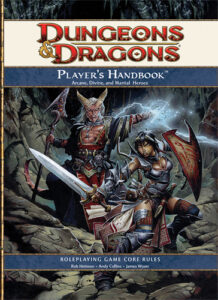Indeed.
As far as faculty/professors are concerned, I’ve always considered myself pretty cool, but I’m beginning to suspect that my students think of me much in the way that I thought of my more… challenging professors. Apparently my grade distributions are second only to the “law” faculty in the department and my ability and indeed desire to stick to syllabilical requirements has become well known in only one short year. Damn right. All of that said, as someone who teaches game design and classes about the history and political-economy of the videogame industry, I still think I’m pretty hip. I may make you work, but at least the source material is cool, right? I tend to not “do” finals, as they are already overdetermined. As if you (my student) hadn’t managed to already make your bed throughout the semester, why on earth would I offer a single moment in which to redeem yourself? I’m a consistency person.
So, this spring I actually held finals, though they had no impact on grades, officially. To the one student who asked, “Can I leave? I have real final I need to get ready for.” You are on notice. Two classes, two very distinct finals. My personal favorite going in to the event was my “(Video)Games as New Media” class in the Telecommunications department. The final exam was a choice between two possible activities:
- Game Design Challenge: Design a Collectible Trading Card Game For Aspiring Local Musicians. The game must provide some reasonably easy means for players to find and access new music.
- Game Play Analysis: Create a Character for one of the following role-playing games and create a basic historical narrative for that character:
- Changeling, Part of the Worlds of Darkness
- Dungeons and Dragons, 4th Edition
This post will focus on the later. The former will be a later post. The reason I focus on this one is the majority of my my students chose this particular activity. It intrigued me that an activity which many identified at first as “easy” was much more difficult than they had originally believed. By this point these kids are no strangers to design documents, which role-playing “guides” are simply a glorified version of with game narrative inserted. After almost an hour many of the students, especially those working with D&D 4th Ed were becoming frustrated. With only two players handbooks between them, there was a growing nervousness:
- “Can we just make up numbers for stats?”
- “What the heck is [X stat] and where does it come from?”
- “Do I have any stuff? How could I be a [X character class] and not have [Y equipment]?”
Near the end of the exam, which all who attended passed, one of my students said those words that now grace the title of this post. It began a series of thoughts, which only now have come to a head for me. Yes, my student dears, I think about what goes on in class far longer than you likely do. And yes, these thoughts are complicated, but they have proven engaging and interesting over the last few weeks. But, ultimately, the answer must simply be, “yes,” I must have had a better imagination, but I suspect that if your dear parents knew I was using Dungeons and Dragons as part of your final, their heads may very well implode. Despite that in all likelihood your math skills went up a notch simply smelling the wood fiber that made up the players handbook.
